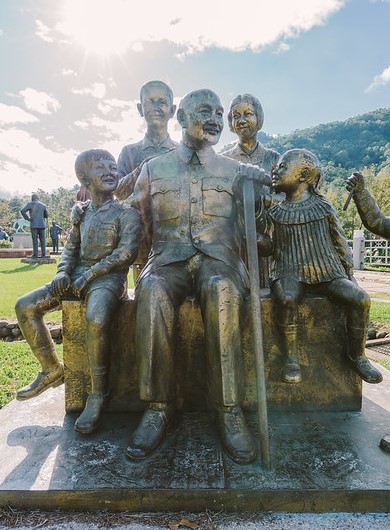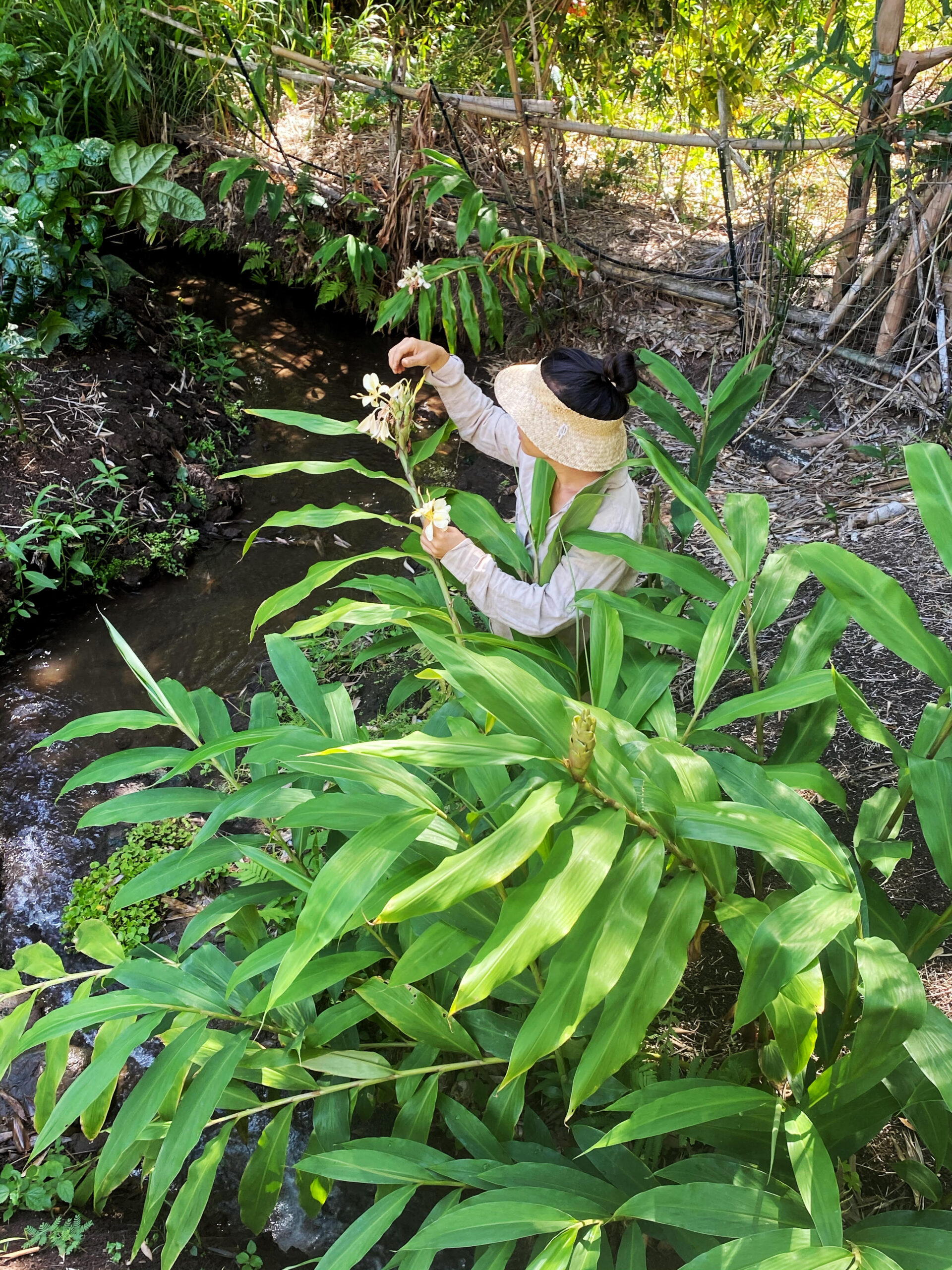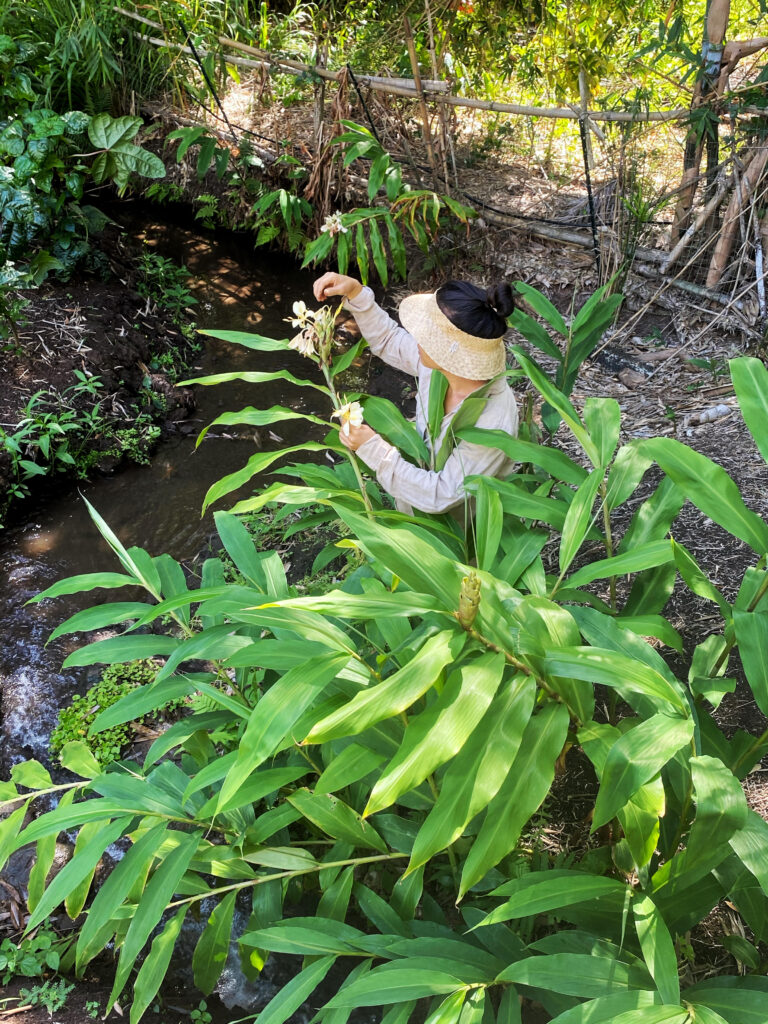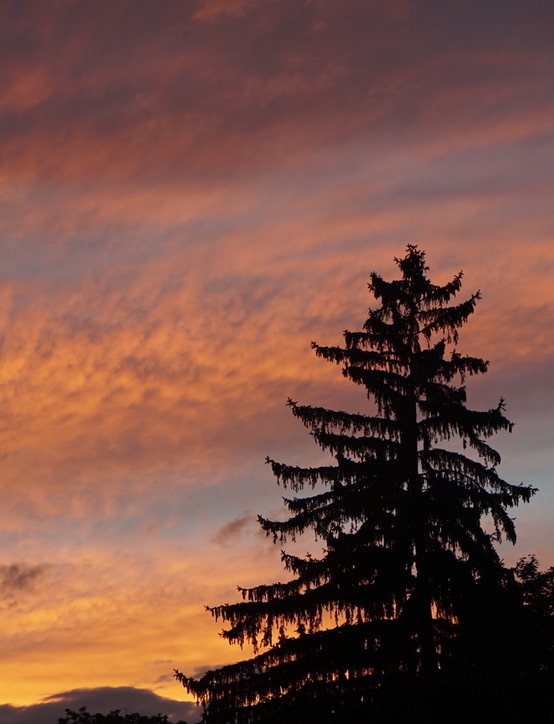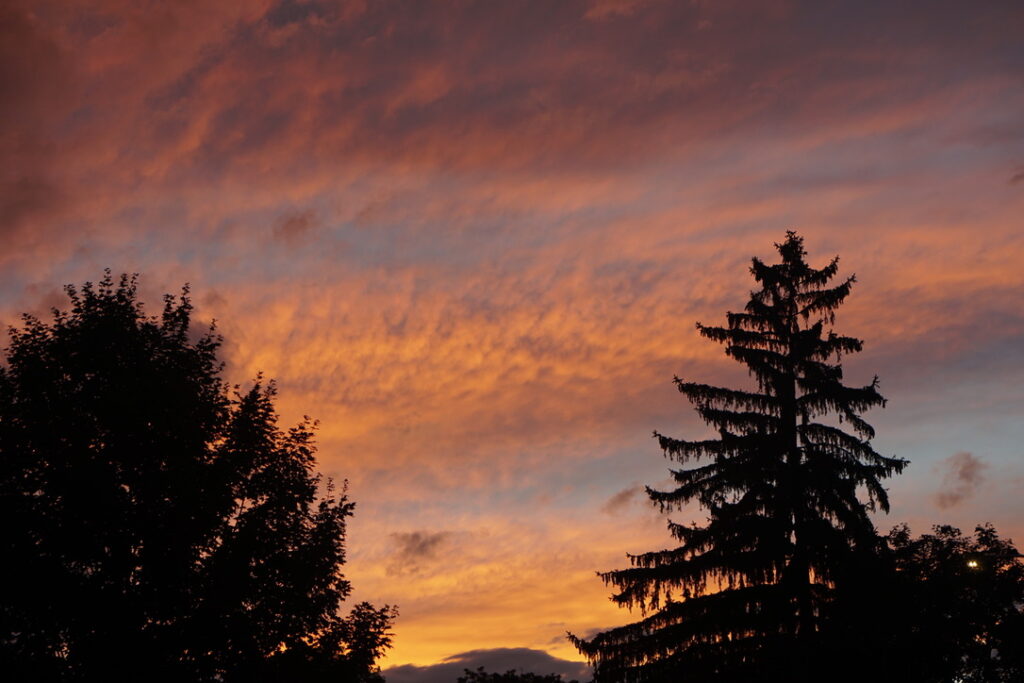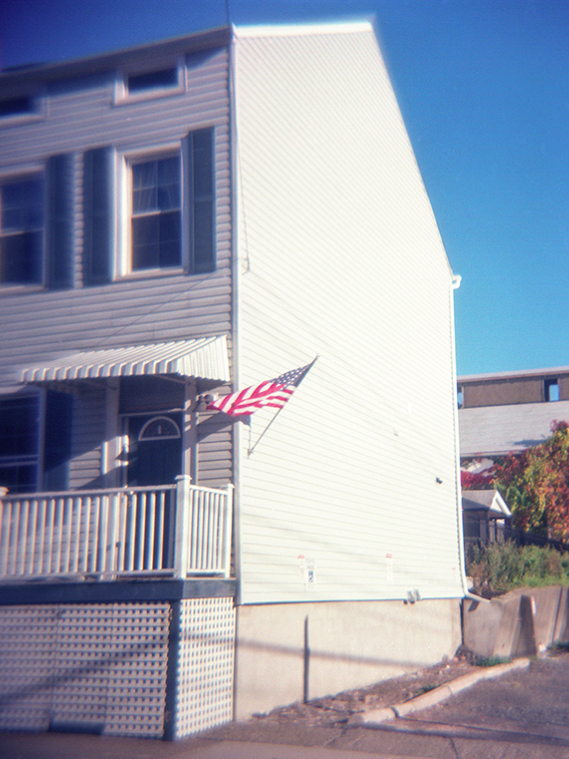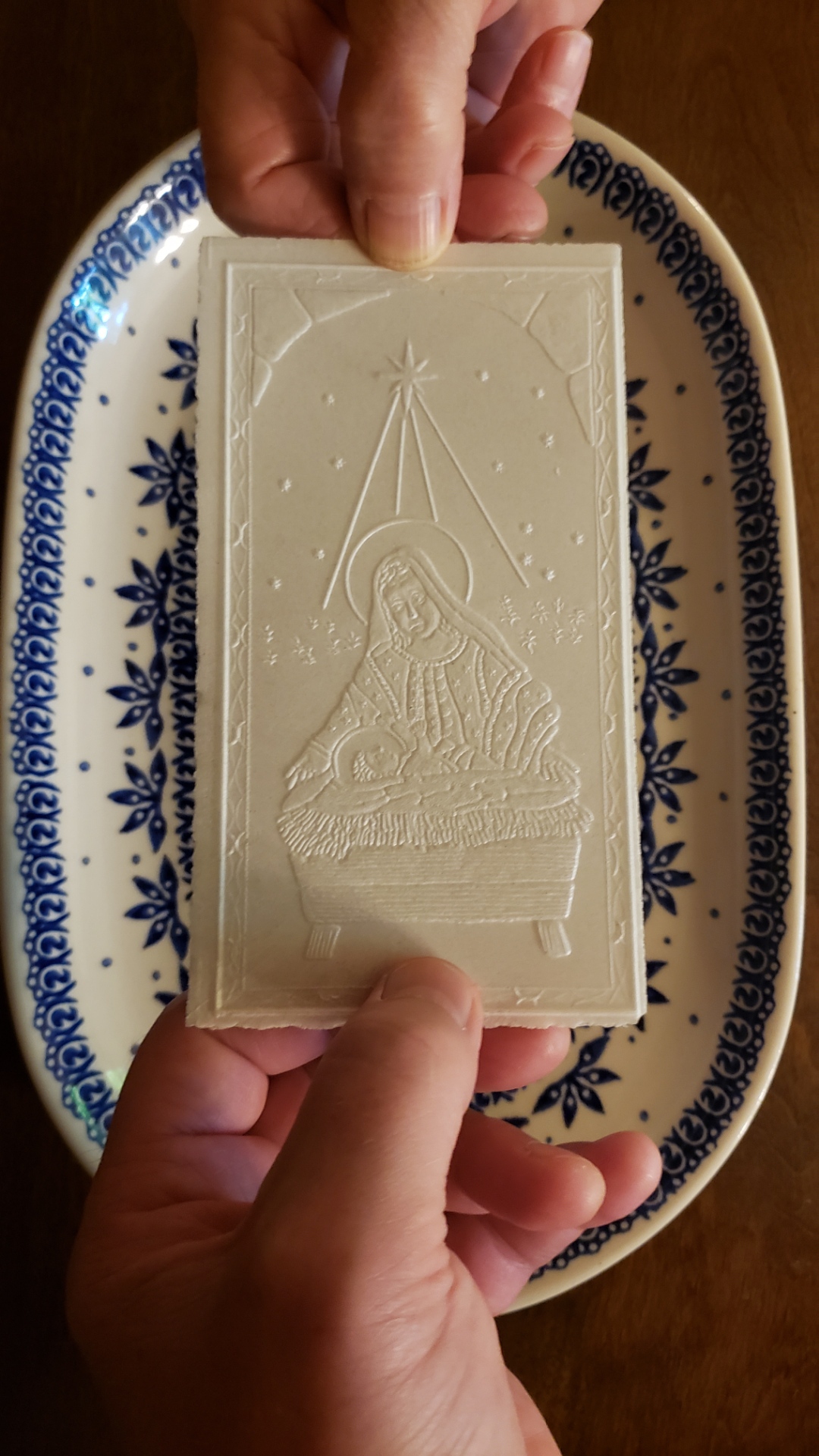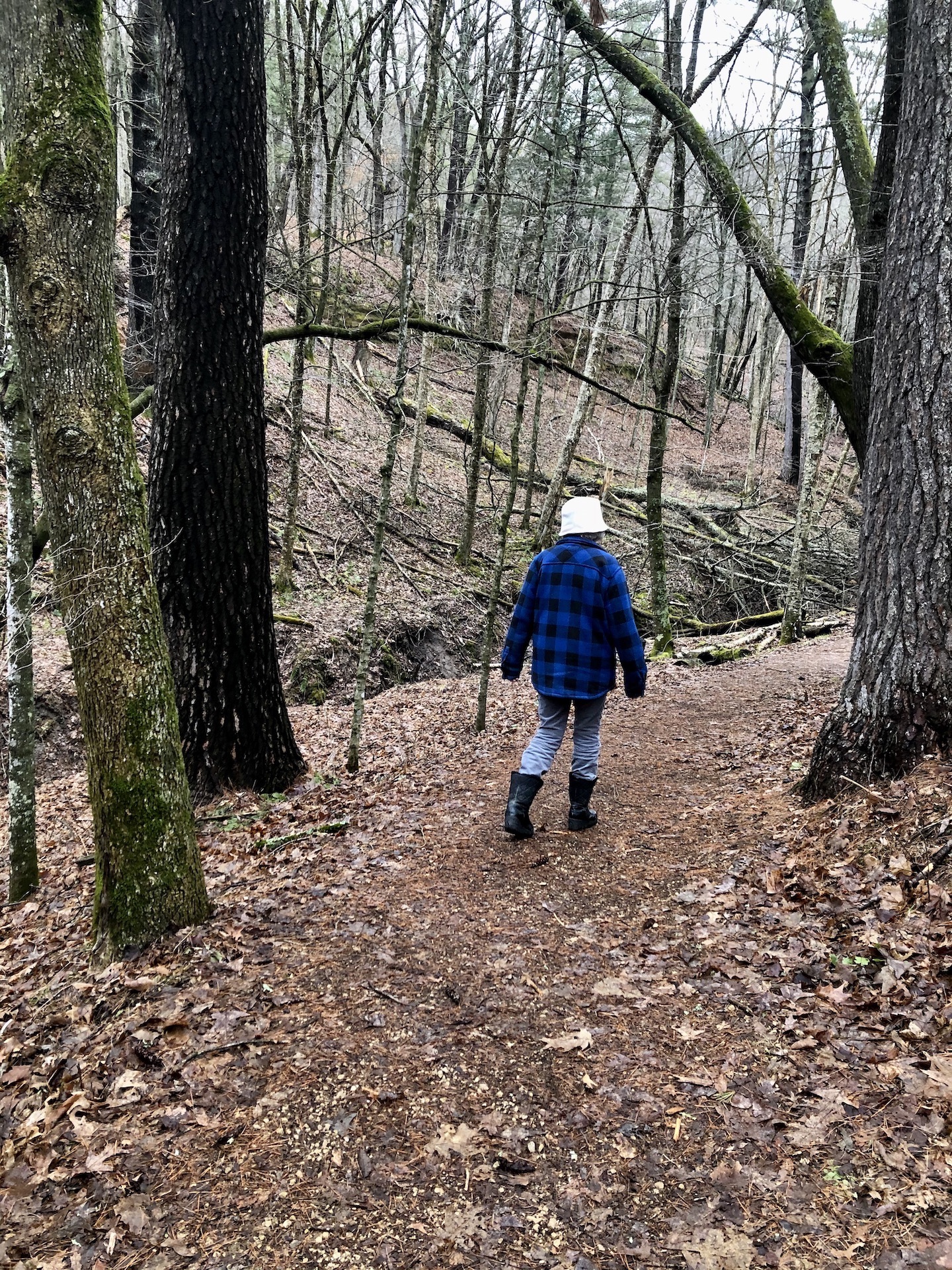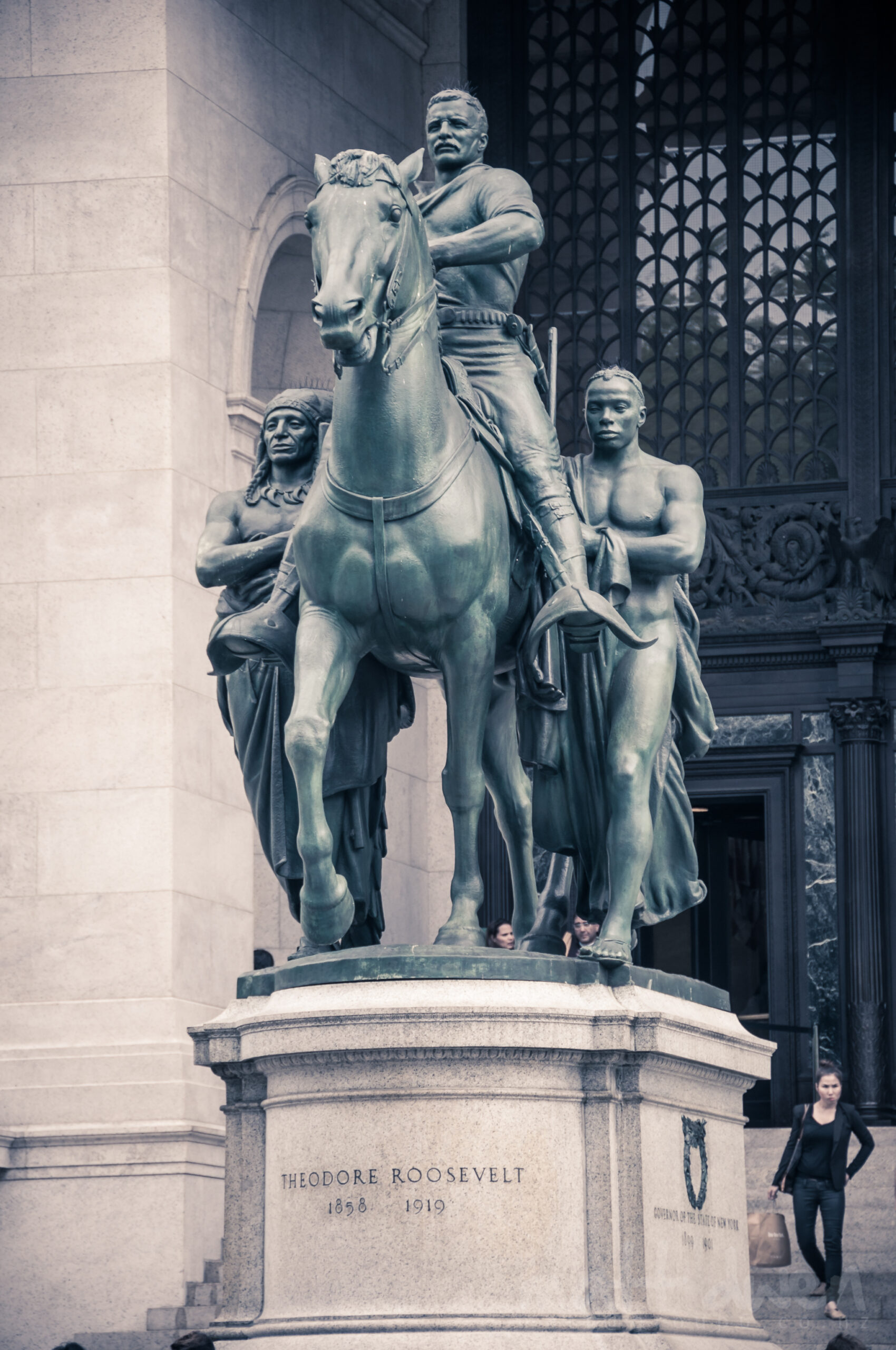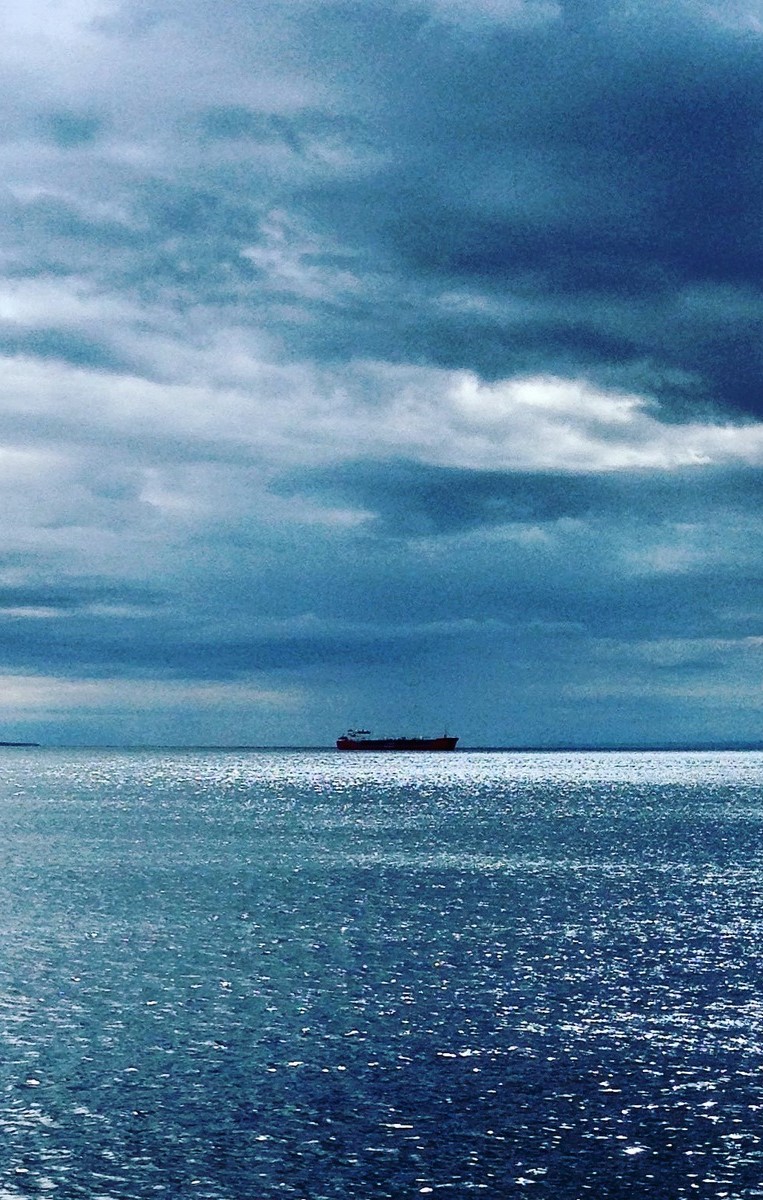By AURORA SHIMSHAK

Vernon County, Wisconsin
I create an occasion for my grandmother. I don’t call it anything, but it’s an occasion nonetheless. For the occasion we travel in her car to the park she shared with me when I was small, a little piece of valley we call the ice cave. For the occasion she chooses her blue flannel and a white fleece hat with flaps that would shield her eyes from the sun, except it’s misting. I wear one of her old coats, a black jacket with Mayan floral weave on the chest, a jacket I haven’t seen in decades. One of the effects of Grandma’s dementia: all of her coats are equally unknown to her now—one is not younger or older, one is not her good coat, none remind her of that fight she had with her son or her husband’s beer drunk resentment. Her husband is the reason for our occasion. Because he is not here. He is in a nursing home she cannot enter due to a highly contagious and sometimes deadly virus she calls the Corawhatever. He is stranded—cramped room, Fall Risk band on wrist—and she should be able to get to him, should be able to help. It’s all she can think about. And so, we go to the ice cave. Do you know how to get there? she asks. I think I do. I drive her car. I tell her at the top of a ridge that feels like my entire childhood, I used to be afraid of this hill. It’s still pretty scary, she says. At the bottom, the bridge is wider than it used to be, but it still bumps us, and in the valley, we pass the schoolhouse where, for a few years, my sister and I lived with our dad, putting scratch-and-sniff stickers on tooth-brushing charts. They painted it red, I say. Sure enough. Pine trees grown up on the hill where we used to sled, the last bend in the road, and we’re there. Small gravel lot by the sagging faces of sandstone and rushing creek. I don’t know if Grandma can make the mile-long trek, but I tell myself it doesn’t hurt to try. We go slow, notice the shape of the land without ferns and foliage for cover. I bend down and touch the lace of white fungi on a rain-soaked log. The warm days have brought the cranes back and melted all snow from the hollows, but ice in the cave is still possible. We won’t know until the end, until we’ve crested the hill obscuring the mouth. Is this it? Grandma asks. I can tell she’s tired, but I say, No, it’s a little bit further. I speed up on the last incline of rust-colored pine needles. White. Ice! I say.
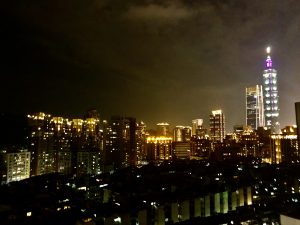
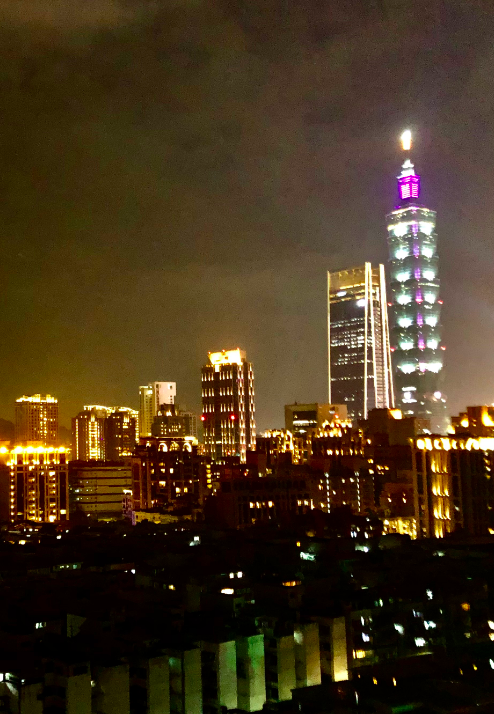
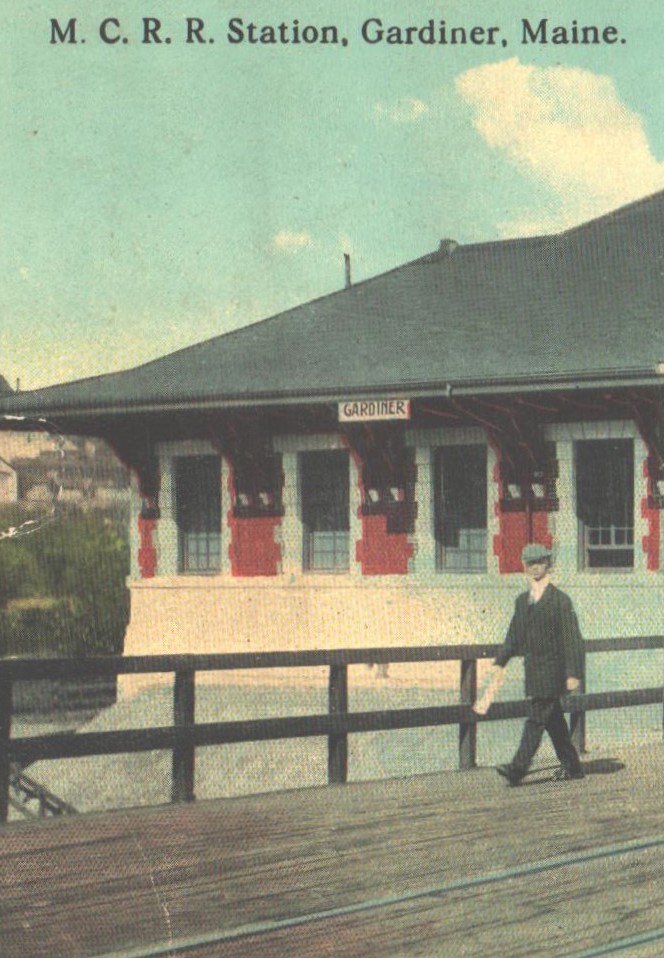
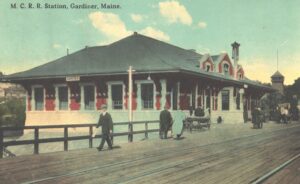 Gardiner, Maine
Gardiner, Maine